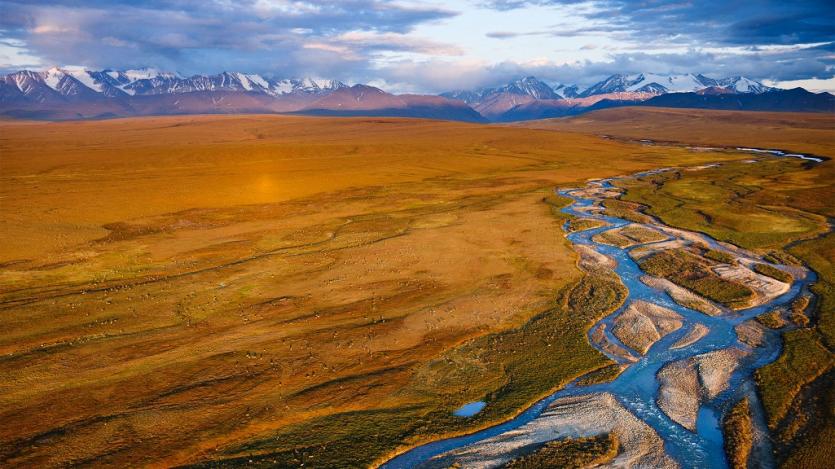Caribou form large herds on the coastal plains north of the Brooks Range in the Arctic National Wildlife Refuge, Alaska.
Plans for oil drilling put forward in Alaskan wildlife refuge
By Patryk Krych | The World Daily | AUGUST 18th 2020
The Trump administration are responsible for setting in motion a plan that involves setting up oil drilling plants in Alaska’s Arctic National Wildlife Refuge (ANWR). A cause they say could lead to better economic stability, however also hurting the environment.
This move and its finalisation of the plans announced on Monday is thought to have been made in preparation for a potential change in the leadership in the United States, set to take place with the upcoming elections. In this way, the plans are setting track to issue decades long leases on the Alaskan territories.
Only one test had been made thus far in the ANWR, to see whether or not fossil fuels could be extracted from its ground. Secretary David Bernhardt said on a conference call with reporters that despite this lack of proper test results and seismic information, many oil drilling companies bid on territories prior, regardless. If the sale is held by the end of the year, which Bernhardt says it may be, it will be too late for any Democratic administrations to stop the oil drilling plans in ANWR.
The opening of ANWR to drilling companies is an act that would create more jobs, as well as help to support the state’s economy, during this time of economical difficulty, according to the Alaskan Governor Michael Dunleavy.
A large majority of Democrats, however, have criticized the move on the Trump administration’s part, stating the fact that this is a hugely terrible push against the environment of the region. Especially given the ANWR’s status as a wildlife refuge. This decision could lead to severe consequences for both the local wildlife and the natives of the land.
Bernhardt went on to state that if oil is truly found in the region, drilling could begin anywhere within the next 8 years, and likely carry on for the next 50. More than enough time to cause significant damage to the region’s ecosystems through industrialisation. When the idea of possible lawsuits was put to question, Bernhardt said that he was “very comfortable with the lines that we drew in this case.”
The region’s been off limits to drilling and major disturbance for decades now, having become a home to many unique species, such as polar bears. Porcupine caribou are also frequent in the region. The area spans over 19 million acres, and is particularly important to polar bears due to their recent migration patterns, instigated by the global heating that’s brought ruin to their natural hunting grounds further North.






